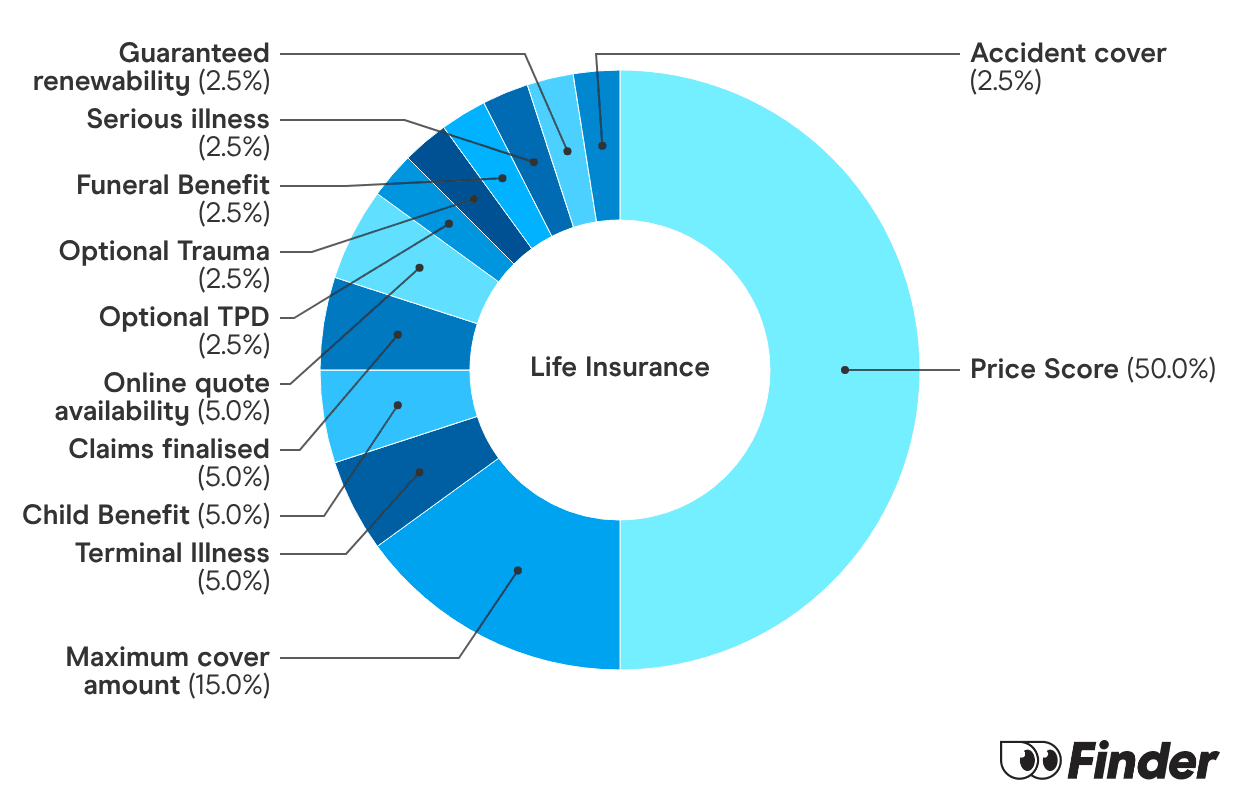Buy a house, get married, have kids – sometimes life can feel a bit like a checklist. But while older generations may have lived through pressure to get settled and hit major life milestones at a young age, the times are changing.
We surveyed 1,013 Australians to find out how old they were when they reached major life milestones, if they reached them at all.
Key trends
- Australians pass most of their big milestones in their late 20s and early 30s, but aren't at their happiest until their 83rd birthday.
- Women reach all of life's major milestones earlier than men, but reach peak happiness slightly later than men.
- Younger generations are less likely to get married and have children than their parents, and those who do start families do so later in life.
- Younger generations are moving out of home and buying their first property later in life than older Australians did.
When do Australians reach major life milestones?
On average, Aussies are reaching their major life milestones in their late 20s and early 30s. After moving out of home at age 24 and buying their first car at age 25, taking out private health insurance is the next big step at age 28.
Buying a home comes around age 32, while writing a will comes a little later at age 40.
Despite getting married, having children and buying a home early on in their lives, Australians don't reach peak happiness until their 83rd birthday. Whereas 77% of all Aussies say they're happy, a whopping 95% of 83-year-olds purport to be happy. The data poses the interesting question that perhaps ticking milestones off a to-do list is not what truly makes life enjoyable.
Trends by generation
Australians are starting families later in life
One of the starkest trends is that people are getting married and having children later in life. Finder's data shows 80% of baby boomers were married before turning 30, compared to just 46% of generation X – an incredible shift from one generation to the next. Similarly, 66% of baby boomers had their first child by age 30, compared to 38% of gen X.
So, why are Aussies starting families later in life? Changes in societal expectations and gender norms, and greater access to higher education mean younger generations are spending more time focusing on their careers and building independent lives. More than three-quarters (78%) of those aged 35–44 have been educated beyond high school, compared to 53% of those aged 65–74. At the same time, women are no longer expected to become housewives and mothers; marriage statistics show 4 in 5 couples (80%) live together before tying the knot.
These trends are impacting not only the age at which people are starting families, but the percentage that do so at all. According to the ABS, the marriage rate has been declining for decades, down from 5.9 per 1,000 population in 2000 to 4.5 in 2019. The birth rate has also been in decline, down from 2.02 births per woman in 2008 to 1.66 in 2019.
Younger generations are living at home longer and buying property later
Housing affordability is an increasingly debated topic in Australia. Over the past 12 months, the price of the average Sydney home went up 25%, while wages increased by just 2.2%. Despite low interest rates reducing borrowing costs for homebuyers, Finder analysis shows millennials are paying 4.9 times more for a home than baby boomers did.
As a result, Australians are getting into the housing market later in life. Nearly two-thirds (62%) of baby boomers had bought their first home by age 30, compared to 42% of gen X and 34% of millennials (note there are some millennials still aged under 30). At the same time, young adults are spending more time living with their parents. While the vast majority of baby boomers (92%) had moved out of their childhood home before their 30th birthday, this declines to 75% of gen X.
Trends by gender
Finder's research found women hit all of life's landmarks at an earlier age than men. The largest gender gaps are in getting married for the first time (26 for women; 32 for men) and having a baby (28 for women; 33 for men). A US study also found women are more likely to live with children outside of marriage than men, which is attributed to the higher prevalence of single mothers than single fathers.
Traditionally, researchers posited that women married older men, who were more likely to have high incomes, while men partnered with younger women who had more child-bearing years ahead of them.
However, long-term population studies have shown the gender age gap in marriage and birth has declined as more women entered the workforce.
Finder's research also found women reach their peak happiness slightly later in life than men. While men achieve maximum happiness at age 80, women peak at age 83. The life expectancy of Australians is 81 and 85 years for men and women respectively, meaning Aussies are at their happiest at the very end of their lives.
Trends by state
Australians across the country are reaching milestones at a similar age, with the exception of buying a home and buying a car. Whereas the average Western Australian gets into the property market at age 27, those from New South Wales don't sign for their first home until age 34 – a mighty 7 years' difference.
Similarly, while those from Western Australia, South Australia and Queensland purchase their first set of wheels at age 22, those from Victoria (26) and New South Wales (27) are waiting a little longer. This discrepancy could be due to young Melburnians and Sydneysiders relying on public transport networks; those from smaller cities likely have a greater need for a car to get around.
Life insurance can protect your family at life's most precious moments
Once you have financial responsibilities or a family relying on your income, it's a good idea to protect yourself with life insurance.
Compare other products
We currently don't have that product, but here are others to consider:
How we picked theseFinder Score - Life Insurance
Life Insurance is a little complicated and a lot overwhelming. That's why we made the Finder Score, to make it easier to compare Life Insurance products against each other. Our experts analysed over 30 products and gave each one a score out of 10.
But a higher score doesn't always mean a product is better for you. Your situation is unique, so your policy choice will be too. Don't think of Finder Score as the final word, but as a good place to start your life insurance comparison.
Ask a question
More guides on Finder
-
Economic snapshot: 4 things to watch this month
Get up to speed with the latest economic update, offering insights into Australia's financial landscape.
-
Finder’s Cost of Living Pressure Gauge
Finder's Cost of Living Pressure Gauge measures the financial stress experienced by Australian households.
-
Finder’s Economic Positivity Index
Tracking the outlook of Finder's panel of economic experts.
-
Finder Consumer Positivity Index
Tracking how Australian consumers feel about the economy and their financial lives.
-
Finder’s Property Investment Index Hobart
Finder's Property Investment Index predicts price growth in each suburb across Australia's major cities. Find out how your suburb stacks up.
-
Finder’s Property Investment Index Adelaide
Finder's Property Investment Index predicts price growth in each suburb across Australia's major cities. Find out how your suburb stacks up.
-
Finder’s Property Investment Index Perth
Finder's Property Investment Index predicts price growth in each suburb across Australia's major cities.
-
Finder’s Property Investment Index Brisbane
Finder's Property Investment Index predicts price growth in each suburb across Australia's major cities.
-
Finder’s Property Investment Index Melbourne
Finder's Property Investment Index predicts price growth in each suburb across Australia's major cities. Find out how your suburb stacks up.
-
Consumer Sentiment Tracker
Discover average home loan sizes around Australia and much more with our comprehensive guide to home loan statistics.

